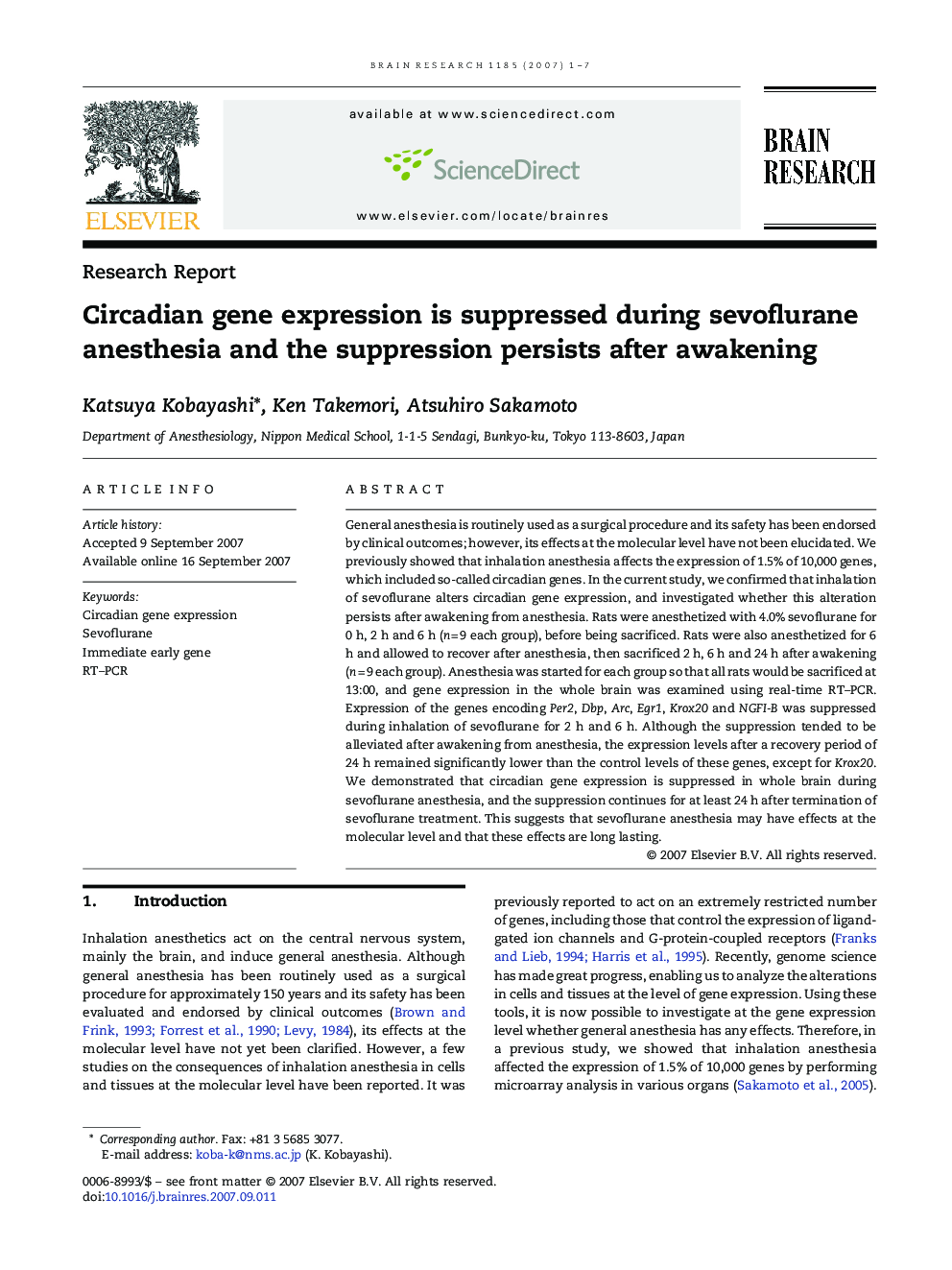| Article ID | Journal | Published Year | Pages | File Type |
|---|---|---|---|---|
| 4330218 | Brain Research | 2007 | 7 Pages |
Abstract
General anesthesia is routinely used as a surgical procedure and its safety has been endorsed by clinical outcomes; however, its effects at the molecular level have not been elucidated. We previously showed that inhalation anesthesia affects the expression of 1.5% of 10,000 genes, which included so-called circadian genes. In the current study, we confirmed that inhalation of sevoflurane alters circadian gene expression, and investigated whether this alteration persists after awakening from anesthesia. Rats were anesthetized with 4.0% sevoflurane for 0 h, 2 h and 6 h (n = 9 each group), before being sacrificed. Rats were also anesthetized for 6 h and allowed to recover after anesthesia, then sacrificed 2 h, 6 h and 24 h after awakening (n = 9 each group). Anesthesia was started for each group so that all rats would be sacrificed at 13:00, and gene expression in the whole brain was examined using real-time RT-PCR. Expression of the genes encoding Per2, Dbp, Arc, Egr1, Krox20 and NGFI-B was suppressed during inhalation of sevoflurane for 2 h and 6 h. Although the suppression tended to be alleviated after awakening from anesthesia, the expression levels after a recovery period of 24 h remained significantly lower than the control levels of these genes, except for Krox20. We demonstrated that circadian gene expression is suppressed in whole brain during sevoflurane anesthesia, and the suppression continues for at least 24 h after termination of sevoflurane treatment. This suggests that sevoflurane anesthesia may have effects at the molecular level and that these effects are long lasting.
Related Topics
Life Sciences
Neuroscience
Neuroscience (General)
Authors
Katsuya Kobayashi, Ken Takemori, Atsuhiro Sakamoto,
